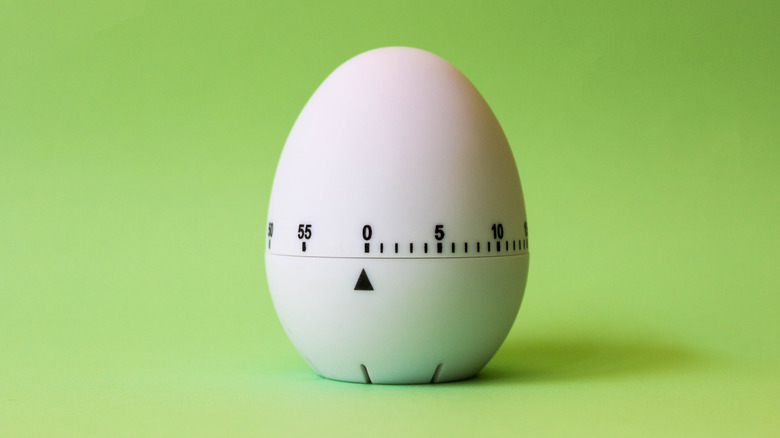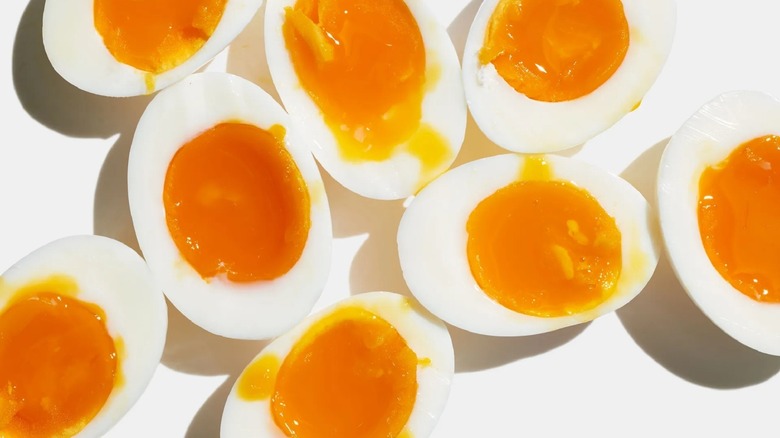The Minute-By-Minute Breakdown You Need For Boiled Eggs
Boiling eggs should be easy, right? Boil water, pop in eggs, cook a bit, let cool, and peel. But as many novice and even experienced cooks know, a lot can go awry. The list of potential failures is long — shells crack in the water, eggs are overcooked, or half the egg comes off with the shell during peeling, to name a few. With mistakes like these, a quick and easy breakfast or lunch can become a long and frustrating ordeal.
Hard-cooked eggs (or hard-boiled) are the classic everyone thinks of when talking about boiled eggs. However when boiling eggs, edible golden goodness can happen in as little as four minutes. Every minute after that creates a different texture egg — from spoon-soft, to jammy and golden, to a firm but soft yolk, to crumbly and hard.
Starting off right is what makes boiling eggs a minutes-long process rather than an exercise in faith. While many of us were taught to submerge eggs in cold water and then bring them to a boil, Epicurious says that's unnecessary. Instead, start with boiling water and cold eggs. That's right — out of the fridge and into the pot. This ensures the shell will easily detach. Once the water is at a rolling boil, gently lower the eggs into the water. Don't just drop them in there, which could cause them to crack, and make sure they are completely submerged.
The longer you cook, the firmer the egg yolk
Okay, the eggs are happily relaxed in a hot tub of water. Now what? Well, that all depends on what you want the end result of not just your yolk, but also your white to be. Eggs are high in protein, and when heated, the proteins unfold and begin linking to other proteins, which cause them to become hard (via How Stuff Works). So, it would stand to reason that the longer you cook, the harder the egg will get.
Once the eggs are in the pot, Bon Appétit suggests turning the water down to a simmer, rather than a bubbling boil, and setting a timer so that when you unlock this treasure chest, you're getting the gold you were hoping for. Simmering the eggs for four to five minutes will yield soft-boiled eggs that you can dip toast into (via Egg Info). Every minute after that will cook the yolk a little more. For soft and gooey eggs, don't go longer than 8 minutes. And anytime after 8 minutes yields a firmer and drier hard-boiled egg (via Epicurious). What's Cooking America allows for cooking up to 19 minutes for a firm, hard-cooked egg, but that's only if the water is simmering. Boiling too long gives eggs that green/gray rubbery texture.
Here's a quick cheat sheet:
- 4-6 minutes: runny, jammy, and pliable yolks with softer whites (soft-boiled).
- 6-8 minutes: firm whites with softer yolk.
- 8-10 minutes: set yolks, firm whites.
- 12-14 minutes: firm yolks with stiff whites.
Remember: If you set a timer, you won't waste a minute worrying that the eggs aren't done right.

